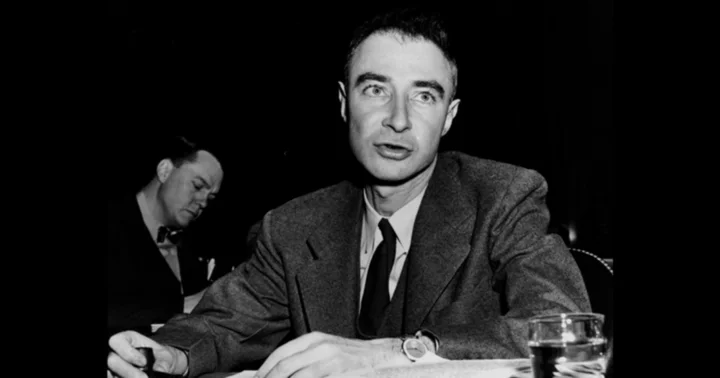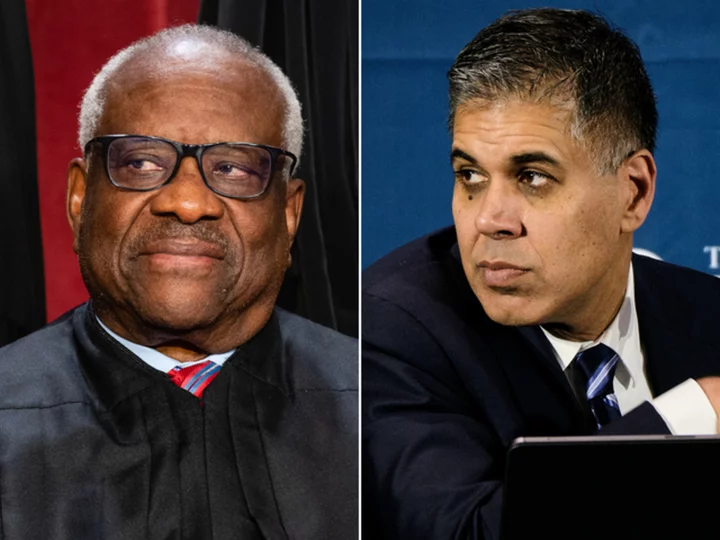LOS ANGELES, CALIFORNIA: The cinematic world witnessed an exhilarating weekend as the Barbenheimer phenomenon took the global box office by storm, with two formidable movies dominating the screens. Margot Robbie's 'Barbie' has been a trailblazer, achieving its own milestones, while Cillian Murphy's 'Oppenheimer' closely follows with an equally impressive global box office performance. Christopher Nolan's latest directorial venture has proven its mettle, amassing a staggering $174 million worldwide during its opening weekend.
These two films have surpassed initial projections and garnered praise from both devoted fans and discerning critics. The Barbenheimer experience has undoubtedly played a pivotal role in their resounding success, as fans eagerly booked double feature tickets in advance, immersing themselves in both the vibrant, fun-filled world of 'Barbie' and the gripping intensity of 'Oppenheimer.' Intriguingly, the plotlines, aesthetics, and genres of these movies stand as polar opposites. Yet, audiences have unreservedly embraced the distinctive offerings, seamlessly transitioning from the light-hearted escapades of Barbie to the profound exploration of J Robert Oppenheimer's life and work.
Nolan's longstanding fascination with Oppenheimer
For Christopher Nolan, the fascination with the father of the atomic bomb has been longstanding, having previously alluded to him in his earlier projects. Crafted from a rare first-person perspective, Nolan's script draws inspiration from the Pulitzer Prize-winning biography 'American Prometheus: The Triumph and Tragedy of J. Robert Oppenheimer,' penned by Kai Bird and Martin J Sherwin. Through this lens, the movie spans several decades, illuminating the life and contributions of the renowned scientist and the individuals enmeshed in the historic Manhattan Project.
Despite the film's achievements, its release has incited a heated online debate, with accusations leveled against Oppenheimer, branding him a 'Nazi.' However, such claims not only distort historical accuracy but also undermine the harrowing struggles endured by Jews under the Nazi regime—among whom were members of Oppenheimer's own family. In the aftermath of this controversy, critics have taken to social media to vent their frustrations, implying that Oppenheimer bears responsibility for the deaths of numerous people of color due to the use of the atomic bomb.
'It's giving white supremacy all around'
"People seem to love #Oppenheimer but I'll just say it: I was uncomfy watching yet another movie about tortured white male genius when the victims of the atrocities glossed over by the script—Japanese people, interned Japanese Americans, and Native Americans—had no voice," one tweeted.
"It's giving white supremacy all around," another wrote.
"...We want more films about the 'complex and troubled' 'heroic' white men, who conducted their GENIUS in a 'virtually unpopulated' place. These are ALL lies. This is mythology in service to white supremacy and the military-industrial complex, masquerading as 'nuanced,'" someone else added.
"Love seeing all the pink for the Barbie movie. Too bad I forgot my nazi merch at home for Oppenheimer :/," another quipped.
Meanwhile, others staunchly defended the portrayal of the nuclear physicist in Nolan's biopic, vehemently contesting any association of Oppenheimer with Nazi oppression.
'He was a real victim'
"Oppenheimer was Jewish. To insinuate that the Japanese were the real victims in WW2 (when they literally sided with Nazi Germany & committed innumerable atrocities against the Chinese population) is both offensive, grossly ignorant & also anti-Semitic. He WAS a real victim," one retorted.
"Oppenheimer, a movie about a Jewish scientist with explicitly anti-fascist and leftist values developing a weapon to attack Nazi allies, is white supremacy in 2023," another observed.
"Oppenheimer - a Jewish man who was fighting to save his family who were still stranded on *that* continent - is a 'privileged white man' and the Nazi's Japanese allies are oppressed people of color That isn't a parody. That's what thousands of people on here actually believe," someone else added.
"The movie is called Oppenheimer… whose family fled Nazi Europe, Jews were still racially “redlined” in the US until 1960; Japan wasn’t an unsuspecting country. Yes it’s bad civilians died, no Japan was not going to surrender after killing nearly 10 million across Asia and the Pacific," another chimed in.
Was Robert Oppenheimer a Nazi?
No, Robert Oppenheimer was not a Nazi. Born in 1904 to German Jewish parents who had established themselves in Manhattan's upper class, Oppenheimer's upbringing was far from traditional Jewish practices. His father, Julius Oppenheimer, arrived in New York as a young teenager from Hanau, Germany, with little money and no knowledge of English. Determined to succeed, Julius worked his way up to becoming a full partner in a textile import business and eventually fell in love with Ella Friedman, an artist from a German-Jewish family that had settled in Baltimore generations earlier.
The Oppenheimer household was secular and fully integrated into American society. They did not follow Jewish religious traditions, refraining from synagogue visits or organizing a bar mitzvah for their son. Instead, they aligned themselves with the Ethical Culture Society, a branch of Reform Judaism that emphasized secular humanism and rationalism over religious dogma. Oppenheimer attended the Ethical Culture School in New York's Upper West Side, where he developed a fascination with universal moral principles and distanced himself from Jewish customs.
Despite his parents being first- and second-generation German immigrants, Oppenheimer claimed not to speak German, as noted by Ray Monk, the author of "Robert Oppenheimer: A Life Inside the Center." He also rejected any significance in the "J" in "J Robert Oppenheimer," even though his birth certificate indicated his given name as "Julius Robert Oppenheimer," thereby acknowledging his father's choice of a Jewish name, per The Jerusalem Post.









